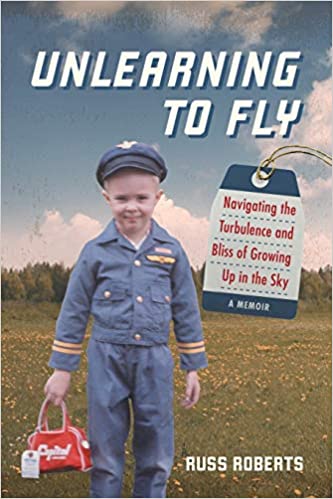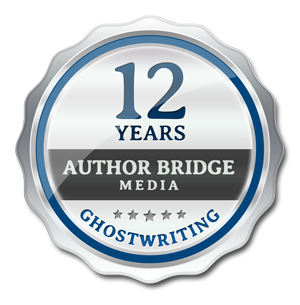5 Keys to writing memoirs like a novel
Writing memoirs is like telling your story to inspire others.
Russ Roberts had a half-written manuscript and a lifetime of memories to share. He came to us to finish the manuscript and publish the book.
Since age 3, Russ had a burning desire to become a pilot. His father already knew how to fix planes but never succeeded as a commercial pilot. Russ’ father had other handicaps as well: alcoholism and emotional abuse.
For young Russ, flying was a way to gain freedom and independence.
Through interviews, writing, design and publishing services, we helped Russ complete his memoir and get it out in the world.
Russ wanted his book to read like a novel, so readers experience his journey as he did. He also wanted to share the emotions he had as a young boy. I’m really proud to say we achieved those goals—and more.
With 47 reviews on Amazon so far, Unlearning to Fly: Navigating the Turbulence and Bliss of Growing Up in the Sky, has averaged 4.5 stars.

Would you like to know 5 keys to writing a memoir like a novel?
Whether you’re writing a memoir or not, these 5 keys could help in your storytelling.
- Discover your Heart Message™.
What is the overall message of your book? Once you know this, you have a clear organizing principle for all the events that happened in the story arc. - Know your story arc.
Every story has a beginning, middle and end. Unless you are a historic figure, your memoir does not begin on the day you were born and end the day you die. You have to know what part of your life your story begins and when it ends. - Don’t tell your feelings.
Instead, show your feelings—through physical sensations. In Russ’ memoir, in one scene, we could have written, “I feel angry and sad.” But instead, we wrote, “My hands are still in fists, but the strength in them is gone. A ball forms in my throat to trap my tears.” - Write in the now.
When your memoir happens in real-time, the reader wants to know what happens next. In Russ’ memoir, one critical scene shows how his life is in danger. Keeping it in present tense adds story tension: “I look over at the icing for the first time in what seems like ages, and it’s worse. I’m at 7,000 feet. The temperature gauge says it’s getting warmer, but still way below freezing. My body is tight, everything drawing into my core. I feel rivulets of sweat dripping down my torso.” - Avoid phrases that sound nostalgic.
For example, avoid phrases such as, “I remember when…,” “I’ll never forget the day when…,” and “Looking back now….”
Do you have a memoir you’re working on? Or do you have a memoir you dream of getting done?
Let's have a chat.
by Helen Chang, ABM Editorial Director
Return to the top of "5 Keys to writing memoirs like a novel" page

